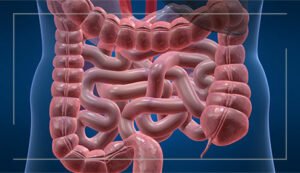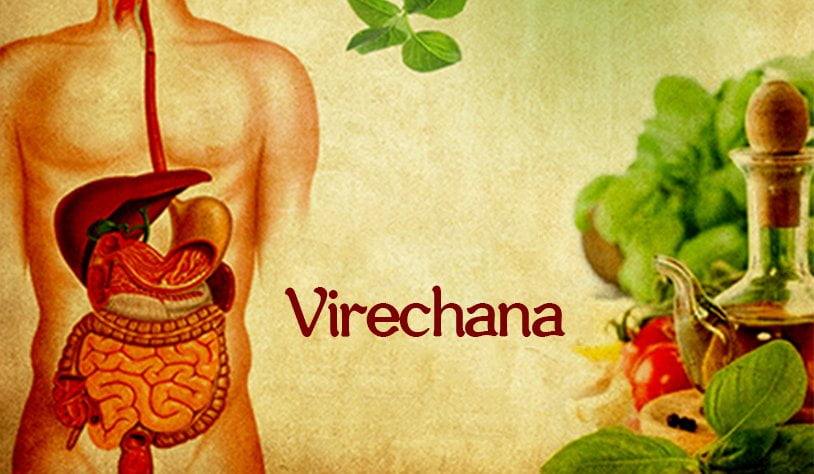Polycystic Ovary Syndrome (PCOS) is a common endocrine disorder affecting individuals assigned to females at birth. While conventional treatments such as medication and lifestyle changes are often recommended, alternative therapies like Ayurveda offer holistic approaches to managing PCOS. One such Ayurvedic practice is Virechana, a cleansing therapy believed to restore balance to the body. In this blog, we have provided detailed information about Virechana for PCOS including its procedure, and benefits of it.
Contents
What is Virechana?
Virechana is a therapeutic procedure in Ayurveda, an ancient system of traditional medicine that originated in India. Ayurveda focuses on achieving balance and harmony within the body, mind, and spirit to promote overall health and well-being. Virechana is one of the main components of Panchakarma, an Ayurvedic detoxification and rejuvenation process.
The word “Virechana” is derived from the Sanskrit words “Vi” (meaning special) and “Rechana” (meaning purgation or elimination). Therefore, Virechana can be understood as a specialized purgation therapy designed to remove accumulated toxins (ama) from the body, balance doshas (the three fundamental energies: Vata, Pitta, and Kapha), and restore optimal health.
Procedure for Virechana for PCOS

The procedure for Virechana, an Ayurvedic therapeutic purgation, involves several stages and is typically performed under the guidance of a qualified Ayurvedic practitioner.
The process aims to eliminate excess doshas (Vata, Pitta, and Kapha), toxins (ama), and other impurities from the body. Here is an overview of the key steps involved in the Virechana procedure:
Consultation: Before initiating Virechana, an individualized consultation with an experienced Ayurvedic practitioner is essential. The practitioner assesses the person’s overall health, medical history, current symptoms, and doshic imbalances to determine the most appropriate course of treatment.
Preparation Phase (Purvakarma):
- Snehapana (Oleation Therapy): This phase involves the internal consumption of medicated ghee or oils to lubricate the digestive tract and tissues, allowing for the easy movement of toxins toward the gastrointestinal tract. The duration of Snehapana varies based on the individual’s constitution and the severity of the imbalance.
Main Purification Phase (Pradhankarma):
- Langhana (Fasting): Before the actual purgation, the individual may be required to observe a light diet or undergo a short period of fasting. This helps in enhancing the effectiveness of Virechana.
- Virechana: After the preparatory phase, specific herbal formulations are administered to induce purgation. Furthermore, the choice of herbs and dosage depends on the individual’s constitution and the nature of the imbalance. The individual may experience multiple bowel movements as the body eliminates toxins and excess doshas.
- Monitoring: Throughout the Virechana process, the individual is closely monitored by the Ayurvedic practitioner. Monitoring includes observing the nature of bowel movements, any signs of discomfort, and ensuring hydration.
Post-Purification Phase (Paschatkarma):
- Dietary Guidelines: After Virechana, the individual follows a specific diet to support the body’s recovery. This usually includes easy-to-digest foods and herbal preparations.
- Rejuvenation: Rasayana (rejuvenation) therapies or herbal supplements may be recommended to nourish and strengthen the body after the purification process.
Follow-Up: A follow-up consultation with the Ayurvedic practitioner is important to assess the outcomes of Virechana and make any necessary adjustments to the individual’s ongoing health regimen.
It’s crucial to emphasize that Virechana, like other Ayurvedic therapies, should be administered by qualified practitioners after a thorough assessment of the individual’s health.
Why is Virechana Best for PCOS?

While it’s important to note that individual responses to treatments can vary, here are some reasons why Virechana may be considered beneficial for PCOS:
- Balancing Doshas: Ayurveda attributes PCOS to an imbalance in the doshas, particularly an excess of Kapha and Pitta doshas. Virechana aims to balance these doshas by eliminating excess toxins and accumulated ama. These help to contribute to hormonal imbalances and reproductive issues in PCOS.
- Toxin Elimination: PCOS is often associated with the accumulation of toxins in the reproductive tissues. Furthermore, virechana facilitates the elimination of these toxins, helping to cleanse and rejuvenate the reproductive organs. This detoxification process is believed to improve the overall health of the reproductive system.
- Regulating Hormones: Hormonal imbalances, particularly elevated levels of androgens and insulin resistance, are common features of PCOS. Virechana is thought to help regulate hormonal levels by addressing the underlying imbalances. Furthermore, this is potentially leading to improvements in menstrual regularity and ovulatory function.
- Supporting Metabolism: Ayurveda emphasizes the importance of balanced digestion and metabolism (Agni). Furthermore, virechana is believed to enhance Agni, promoting better digestion and assimilation of nutrients. This can be beneficial for individuals with PCOS who may experience metabolic challenges, including insulin resistance and weight management issues.
- Stress Reduction: Stress is known to exacerbate PCOS symptoms. Ayurvedic therapies, including Virechana, are considered to have stress-relieving properties. Furthermore, by promoting relaxation and reducing stress, Virechana may indirectly contribute to the management of PCOS symptoms.
- Individualized Treatment: Ayurveda recognizes the unique constitution of each individual (Prakriti) and tailors treatments accordingly. Virechana is administered based on an individual’s specific doshic imbalances and overall health condition. This personalized approach allows for a targeted and effective treatment for PCOS.
- Complementary to Lifestyle Changes: Virechana is often recommended as part of a comprehensive Ayurvedic treatment plan, which may include dietary and lifestyle modifications. These changes can support the effectiveness of Virechana and contribute to the overall management of PCOS.
It’s important to note that while Ayurvedic therapies like Virechana may offer benefits for some individuals with PCOS, they are not standalone cures.
Limitations of Virechana for PCOS
While Virechana, an Ayurvedic therapeutic purgation, is believed to offer benefits for individuals with Polycystic Ovary Syndrome (PCOS), it’s important to acknowledge certain limitations and considerations associated with this approach. Here are some key limitations:
- Effectiveness Varies: The effectiveness of Virechana, like any medical intervention, can vary from person to person. PCOS is a complex and multifaceted condition with diverse manifestations, and what works for one individual may not be as effective for another.
- Not a Standalone Treatment: Virechana is not a standalone cure for PCOS. While it may contribute to balancing doshas, eliminating toxins, and improving overall well-being, it should be considered as part of a comprehensive Ayurvedic treatment plan that includes dietary and lifestyle modifications.
- Lack of Scientific Evidence: The scientific evidence supporting the efficacy of Virechana specifically for PCOS is limited. While Ayurveda has a long history and is valued for its holistic approach, more research is needed to establish the effectiveness of Virechana. It is for managing PCOS according to modern scientific standards.
- Requires Professional Guidance: Virechana and other Ayurvedic therapies should only be administered by qualified and experienced practitioners. Inappropriate use or self-administration without proper guidance may lead to adverse effects or complications.
- Potential Discomfort and Side Effects: The purgation induced by Virechana can cause temporary discomfort, including abdominal cramps, nausea, and diarrhea. Individuals undergoing Virechana should be prepared for these effects and must be closely monitored during the process.
- Not Suitable for Everyone: Virechana may not be suitable for everyone, especially those with specific medical conditions, weakened digestive systems, or during certain phases of life (such as pregnancy or menstruation). A thorough assessment by an Ayurvedic practitioner is crucial to determine its suitability for an individual.
Does Virechana Help in Concieving?

While some proponents of Ayurveda suggest that balancing these doshas through practices like Virechana may have positive effects on reproductive health, it’s important to note that scientific evidence supporting the direct role of Virechana in conception is limited.
Here are some points to consider:
- Balancing Doshas: Ayurveda considers the balance of doshas as crucial for overall health, including reproductive health. Virechana is believed to eliminate excess doshas and toxins from the body, which may contribute to creating a more favorable environment for conception.
- Detoxification: Virechana is thought to facilitate detoxification by eliminating accumulated toxins (ama). A cleaner and healthier internal environment may theoretically support reproductive function.
- Individualized Approach: Ayurveda is known for its individualized approach, taking into account a person’s unique constitution (Prakriti) and imbalances. Virechana, when tailored to an individual’s specific needs, may address factors contributing to reproductive challenges.
- Hormonal Balance: Ayurveda emphasizes balancing hormonal levels through lifestyle, diet, and specific treatments. Virechana may play a role in restoring hormonal balance, which is crucial for conception.
However, it’s important to be aware of the following considerations:
- Limited Scientific Evidence: While Ayurveda has a long history and is respected for its holistic approach, scientific evidence supporting the direct impact of Virechana on fertility and conception is limited. More research is needed to establish the efficacy of Ayurvedic practices in the context of reproductive health.
- Multifactorial Nature of Infertility: Infertility is often a complex and multifactorial issue with various contributing factors, including medical, genetic, environmental, and lifestyle factors. While Ayurveda may offer a holistic approach, it should be integrated with conventional medical care. Furthermore, this is for a comprehensive assessment and management of infertility.
- Consultation with Healthcare Professionals: Individuals seeking to conceive should consult with healthcare professionals, including fertility specialists and Ayurvedic practitioners. It’s essential to undergo a thorough evaluation to identify any underlying medical conditions and determine the most appropriate course of action.
Conclusion
Virechana, as part of Ayurvedic Panchakarma, offers a holistic approach to managing PCOS by addressing the root cause of imbalances in the body. However, it is essential to approach Ayurvedic therapies with a comprehensive understanding of individual health needs. Consultation with a qualified Ayurvedic practitioner is crucial to ensure personalized and effective treatment.
While Virechana may not be a standalone cure for PCOS, it can complement conventional treatments and lifestyle modifications, providing a more holistic approach to wellness. As with any medical intervention, individuals considering Virechana for PCOS should consult with their healthcare provider to ensure its suitability for their specific condition.


